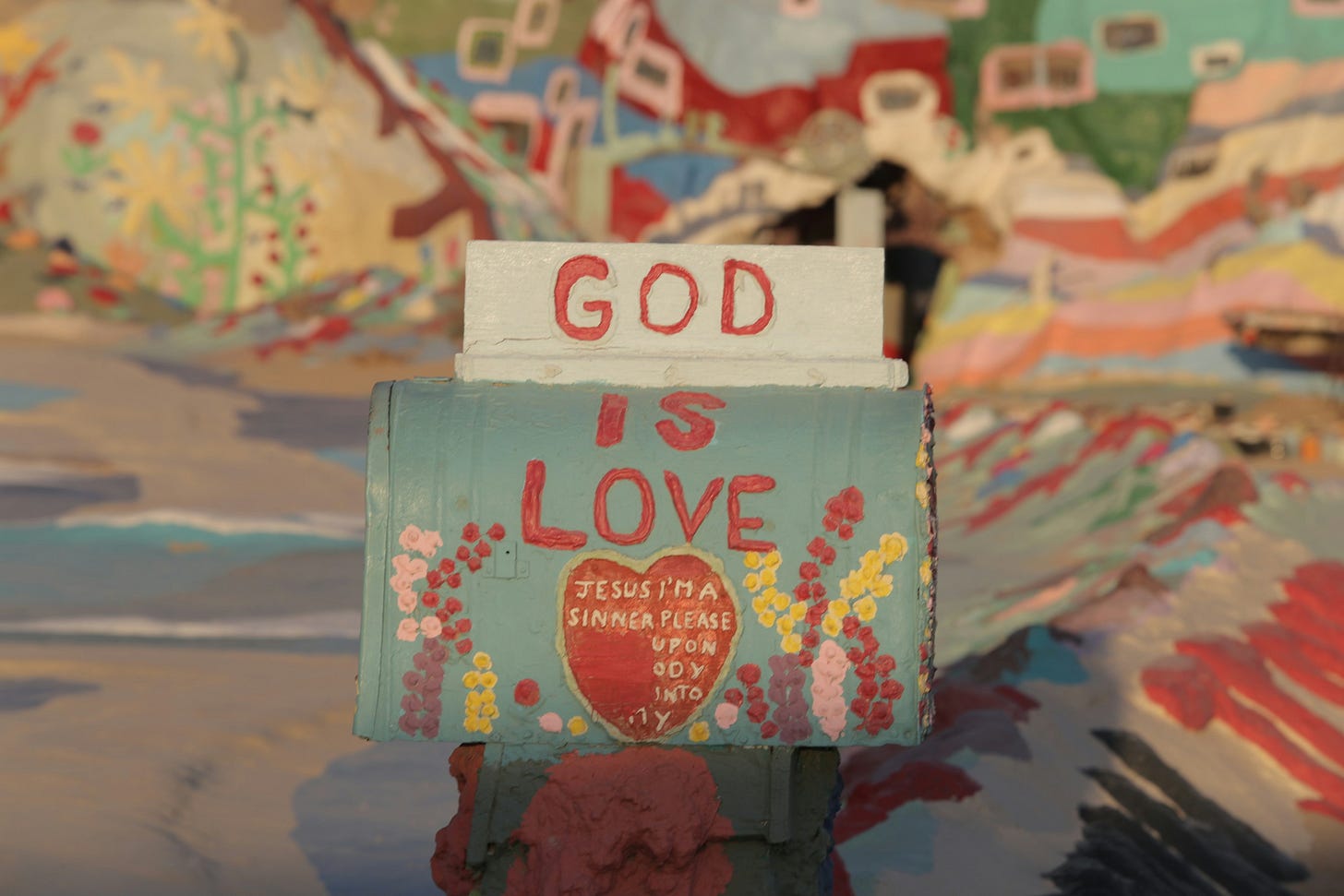Theology Begins With Love
Several years ago, I posted a thought on social media that got the attention of a friend.

Several years ago, I posted a thought on social media that got the attention of a friend. In the post I said,
“If a theology does not begin with love, you do not begin with God, for God is love.”
As good friends do, I received pushback with the question, “Is God holy and just?” To which I said, “Yes.” His next question: “So, what’s wrong with starting there instead of love?”
Thanks for reading Greatest of These! Subscribe for free to receive new posts and support my work.
At the time, I was just thinking through this concept through the lens of the gospel and not ontological arguments for God.
I responded to my friend that the basis of my assertion is the gospel as proclaimed as “God so loved the world…” The root of the gospel is love.
For God so loved the world, that he gave his only Son, that whoever believes in him should not perish but have eternal life. Jn 3:16.
Also, Jesus Christ gave us the two greatest commandments centered on love.
“Teacher, which is the greatest commandment in the Law?” And he said to him, “You shall love the Lord your God with all your heart and with all your soul and with all your mind. This is the great and first commandment. And the second is like it: You shall love your neighbor as yourself. On these two commandments depend all the Law and the Prophets.” Mt 22:36–40.
In 12 verses, we are told 13 times to “love one another.”
A new commandment I give to you, that you love one another: just as I have loved you, you also are to love one another. John 13:34.
This is my commandment, that you love one another as I have loved you. John 15:12.
These things I command you, so that you will love one another. John 15:17.
Love one another with brotherly affection. Outdo one another in showing honor. Romans 12:10.
Now concerning brotherly love you have no need for anyone to write to you, for you yourselves have been taught by God to love one another. 1 Thessalonians 4:9.
Having purified your souls by your obedience to the truth for a sincere brotherly love, love one anotherearnestly from a pure heart. 1 Peter 1:22.
For this is the message that you have heard from the beginning, that we should love one another. 1 John 3:11.
And this is his commandment, that we believe in the name of his Son, Jesus Christ and love one another, just as he has commanded us. 1 John 3:23.
Beloved, let us love one another, for love is from God, and whoever loves has been born of God and knows God. 1 John 4:7.
Beloved, if God so loved us, we also ought to love one another. 1 John 4:11.
No one has ever seen God; if we love one another, God abides in us and his love is perfected in us. 1 John 4:12.
And now I ask you, dear lady—not as though I were writing you a new commandment, but the one we have had from the beginning—that we love one another. 2 John 5.
I think there is a knee-jerk reaction to God’s love as we are conditioned to think judgement and punishment are the opposite of love. Judging people is characterized as being unloving. We live in a culture that many see the punishment of criminals as being unjust and too harsh.
So, when we read verses from the Bible that God is judge and will punish the wicked because he is holy and just, we do not see love in God’s holiness and justice. Our culture has conditioned us to think that God can be holy and just, OR God can be love. God cannot be holy, just, and love at the same time.
I’ve heard some conservative Christians push back against progressive Christians who say God is all-loving with the phrase, “But God is holy and just!” The ‘but’ in that sentence needs to be changed to ‘and’. God is holy AND just ANDlove.
I understand where my friend is coming from. Growing up as a Christian, I learned a theology that began with God’s holiness. His existence is holiness as he is completely ‘other’ compared to the creation. And from this holiness all the other attributes of God stem.
I would argue it is his love within the Trinity from which all the other attributes stem. And it is his love that motivates him to create. And it is his love that delivers and sustains his creation.
Where do you think theology should begin?



